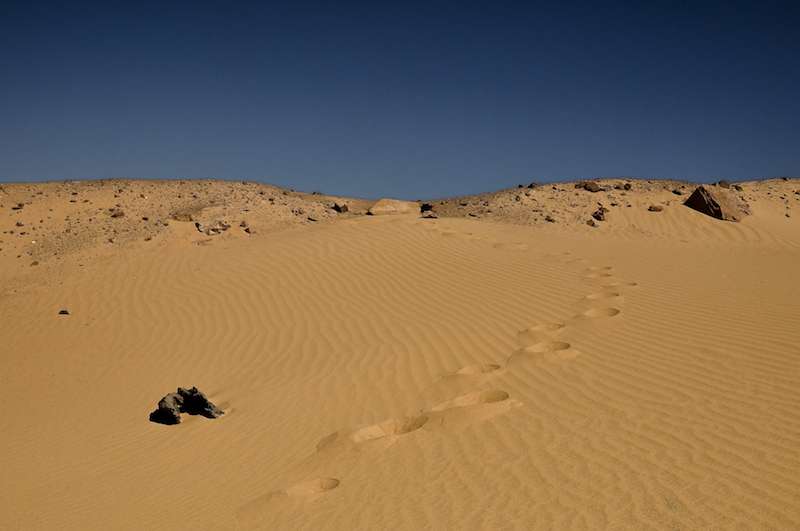Libya instability now poses terror threat to Egypt

Terrorist groups take advantage of the weaknesses of states – such as instability or the absence of strong political authorities – to expand and gain influence. This is the case, for example, of the Sahel nations, which are mired in serious humanitarian, economic and political crises that have turned the African region into one of the main global jihadist hotspots.
The situation in the Sahel is of particular concern in North Africa. Various analysts and experts have warned that the growing jihadism in the region could spread to the Maghreb if measures are not taken to combat this scourge.
Within the Maghreb, Libya is one of the countries of greatest concern due to its critical situation. In the midst of political instability – Libya currently has two parallel governments – after years of conflict and armed clashes, terrorist groups have managed to establish themselves in points in the desert near the border with Egypt, such as the Al Jaghbub oasis, a location they use for arms smuggling.

Last week, authorities in Tobruk, in the east of the country, announced the seizure of large quantities of dangerous weapons in an area south of the city that were destined for Egyptian territory via Al Jaghbub.
Turkey and Europe are preparing for a possible military operation against the Wagner group in Libya.
During a press conference, Tobruk’s director of security, Brigadier General Sami Idris, described the seized weapons as “dangerous and of high quality”. “The weapons are not conventional. They are weapons commonly used by terrorist organisations,” Idris said.
The general confirmed that the seized weapons were intended “to be smuggled into Egypt”. Idris explained that information received from the Al Jaghbub police station indicated that there were “strange movements” in the north-east of the area, prompting security forces to move in and monitor the area. “After gathering intelligence it was discovered that there were hidden weapons in the desert area ready for smuggling,” he added, according to The Libya Update.
This situation also poses a threat and challenge to Egypt. In this regard, Idris has called for greater intelligence cooperation between the two countries in order to curb arms smuggling. “Despite the current border-related security coordination between Egypt and Libya – resulting in numerous seizures – the issue requires greater intelligence sharing between the two sides,” he said.
This recent operation against arms smuggling networks comes at a time when analysts and experts are warning of al-Qaeda’s expansion into southern Libya. From this area, in addition to transporting arms to Egypt, weapons are also supplied to other bordering countries such as Chad and Niger.
Security sources have told The Arab Weekly – a London based website once sponsored by the UAE and is pro Haftar – that although the terrorists are concentrated deep in southern Libya for the moment, there is a great danger if they manage to gather forces and head towards the Egyptian border.
Libya and Egypt share a border of more than 1,000 kilometres. Due to instability in the neighbouring country, Cairo has conducted numerous operations along the border to protect national security. This, coupled with security coordination between the Egyptian authorities and Libyan National Army forces led by Marshal Khalifa Haftar, has contributed to a reduction in smuggling.
Analyst Ahmed Kamel Behairy, quoted by the Arab media, notes that this cooperation between Cairo and Haftar has brought some stability to the border. However, he says that southern Libya continues to pose a risk due to the spread of terrorist organisations and organised crime groups.
Therefore, Behairy believes that “Egypt will remain vulnerable to any terrorist infiltration, no matter how high the security capabilities, as long as the presence of these groups in Libya continues”. Meanwhile, counter-terrorism expert Reda Yacoub tells The Arab Weekly that the clashes between the two Libyan governments have a negative impact on security in the area.
Cairo must contend with the dangers in the area after years of intense counter-terrorism in the Sinai. Last week, Egyptian President Abdel Fattah Al-Sisi travelled to the peninsula to review investment and development programmes and initiatives in the region. “We are eager to achieve security and stability for the residents of Sinai,” Al-Sisi said, according to Egypt Today. According to the president, “thanks to Allah, the army and the police” this scourge has been put to an end.
Margarita Arredondas, Atalayar.com
Want to chase the pulse of North Africa?
Subscribe to receive our FREE weekly PDF magazine














